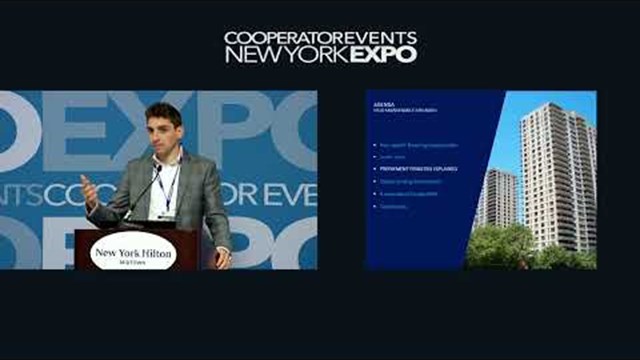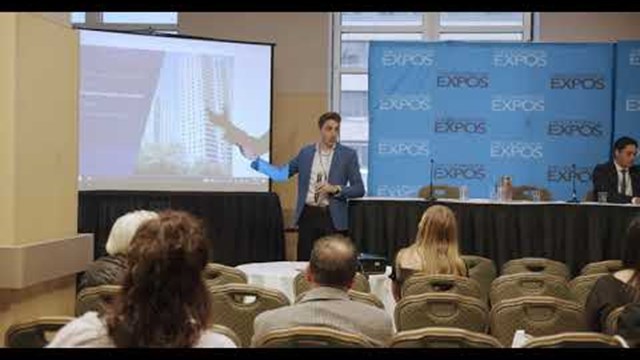
Unit owners attempting to sell their apartments may find that prospective purchasers are encountering difficulty in obtaining a mortgage if their property is not approved by Fannie Mae. When these unit owners have difficulty selling their apartments, they often turn to their board, who then must obtain a crash course in Fannie Mae guidelines. These guidelines are published in Fannie Mae’s 1,200-page Selling Guide which is prepared for lenders, but which in some cases offers minimal consideration of the realities of the local markets.
It is important to understand that Fannie Mae and Freddie Mac purchases 90 percent of the end loans obtained by unit owners. Fannie Mae has become the benchmark for most properties and rules have been adopted for Jumbo Loans. Fannie Mae typically relies on the lenders to perform the reviews for co-ops and condos. If a project does not meet the guidelines, the lender can seek waivers of the guidelines if there are compensating factors.
Additionally, lenders were historically allowed to utilize a limited review program to have condominium properties approved. Fannie Mae regulations are adapting to the environment, and as a result utilizing the limited review has become more stringent.
It may seem that Fannie Mae is simply getting more serious about the rules, however, they are also requiring lending banks to repurchase loans that don’t meet the requirements shown in the Guide. As a result, lenders are following the Guide quite carefully.
Concerns and Caveats
There are concerns with the Guideas it is changed without any public consideration, without published proposals or news releases, and without a period for public comments. Updates appear on the website without any prior notice that changes are being considered.
In the New York metropolitan area there are aspects of the Guidethat seem to affect condominium properties described by one or more of the following criteria:
Projects where a single entity owns more than 10 percent of the total units
Accounting regulations require disclosure when there is ownership greater than 10% by a single entity. This has caused previously qualified properties to no longer be qualified unless they are able to obtain a waiver.
Projects where more than 20 percent of the total space is used for non-residential purposes and projects in which the developer/sponsor has ownership interest/rights other than in relation to unsold units
Generally the sponsor or developer maintains ownership of valuable non-residential space. However, some sponsors have established “sweetheart” lease deals as part of their conversion of the property. These deals may create issues in the approval process. In rare cases, the condominium may have substantial common area with retail leases. The rent from commercial tenants supplements the common charges from residents. In both cases, Fannie Mae focuses on the concentration of revenue source and the risk of vacancy. This may result in a waiver being required or a rejection.
In absence of a Useful Life Study, 10 percent of monthly expenses must be designated for reserves.
Our firm has always encouraged long-term planning for our clients’ financial well-being. Financial statement disclosure requirements call for either disclosure of the results of a Useful Life Study or that the study has not been undertaken. One concern is that the level of reserve funds that such a study would indicate are needed would be substantially greater than those maintained by most properties.
From a long-term financial perspective, it is beneficial to consider designating 10 percent of monthly expenses as reserves. However, how does a board propose a 10 percent increase in this economic environment? While our firm encourages every property to maintain annual funding for reserves, it seems that some lenders will not accept anything less than 10 percent funding.
Projects with more than 15 percent of units more than 30 days in arrears
This aspect of the selling guide seems to predominantly affect condominium conversions, regardless of whether the initially proposed common charges were adequate or not. In order to avoid rejection under the guidelines, once “underwater” unit owners stop paying their common charges, condos need to take immediate action to resolve delinquencies.
Projects where the association is named as a party to pending litigation, or where the developer/sponsor is named as a party relating to issues of safety, habitability, structural soundness, or functional use.
Condominiums that are considering pursuing sponsors and developers for issues related to construction face the possibility that doing so could cause difficulties for the prospective purchaser in obtaining mortgages.
Properties with tax or assessment abatements which will terminate partially or fully within three years
As long as the board has a plan to assure unit owners can pay for the increase in maintenance when the abatement expires, there should be no issue. However, for newer condominiums with abatements that will expire, the question is whether substantially increased real estate taxes will cause additional unit owners to be in arrears.
The good news is that a co-op is only required to demonstrate adequate reserves that meet currently accepted industry levels in lieu of 10 percent of expenses being designated for reserves.
Unfortunately, only the lender submitting the loan for approval of financing for a purchase can apply for a waiver. We are continually contacted by clients under time pressure to assure that a commitment letter for a prospective purchaser does not expire. The best strategy of avoiding the need for the lenders to request a waiver is a proactive approach by the board and property manager who can work with the local lenders. By sharing timely information, such as financial statements, offering plan amendments, updates on insurance and future budgets, you are in a position to determine the status of your property. This dialogue should be maintained on an ongoing basis as the guidelines continue to change and a previously eligible building may become ineligible.
We cannot stress the importance of speaking with the right person at the lender institution. It is imperative that the person is knowledgeable and has vast experience in this area.
Encountering situations where there is time pressure can be avoided by evaluating your property’s situation well before a crisis arises. Perhaps most importantly, don’t take the lender’s questionnaire lightly. With the constantly changing environment, the moment a questionnaire arrives; consideration should be given to changes that will affect your property. From the point where an owner initially shows the unit, the board or property manager should be prepared with a list of lenders who are active and providing financing for units in the property. Consider providing this information to prospective purchasers during their initial viewing of the unit.
Although it appears that each lender maintains their own list of eligible and ineligible properties, a lender needs to input data in the Condo Project Manager (CPM), a tool available on the Fannie Mae website to help determine if a project will meet Fannie Mae eligibility requirements. This tool is available for use by board members as well.
At some point, hopefully the co-op and condo community will be able to allow properties to take responsibility for resolving eligibility issues and for requesting waivers as well. There is information for the lenders to evaluate your property’s situation and for your unit owners as well. The key to success is an investment in understanding and communication to assure that your board does not receive that frantic call when an important mortgage commitment is about to expire. At that point you have limited options to resolve the situation.
Stephen Beer, CPA, is with Czarnowski & Beer, LLP, a certified public accounting, auditing and management consulting firm, is centrally located in Midtown Manhattan, serving New York City, Long Island, New Jersey and Florida.






Comments
Leave a Comment